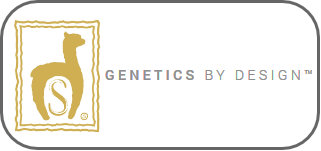Four fibre traits (fibre diameter, FD; coefficient of variation of FD, comfort factor; and standard deviation of FD) were jointly analysed with six subjectively scored type traits (fleece density, crimp, lock structure, head, coverage, and balance) in two breeds of Peruvian Altiplano alpaca (Suri, SU; and Huacayo, HU) to ascertain their genetic relationship. A total of 2405 fibre records and 2194 type scores were available for the HU breed whereas these figures were 709 for fibre records and 650 for type scores for the SU breed. Estimated heritabilities for fibre traits were moderate to high, ranging from 0.565 to 0.699 in the SU breed and from 0.255 to 0.417 in the HU breed. Genetic and permanent environmental correlations between fibre related traits were extremely similar across breeds suggesting that these traits are fairly the same. Heritabilities estimated for the type traits tended to be lower than those estimated for the fibre traits particularly in the SU breed (ranging from 0.173 to 0.272). Fibre and type traits were, in general, genetically poorly correlated except for crimp in the HU breed, which had favourable correlations, from moderate to high, for fibre traits. In Altiplano areas in which fibre performance recording could not be implemented, crimp scoring makes it feasible to carry out mass selection in the Huacayo breed and furthermore include rural communities in national or regional selection programmes.
more »